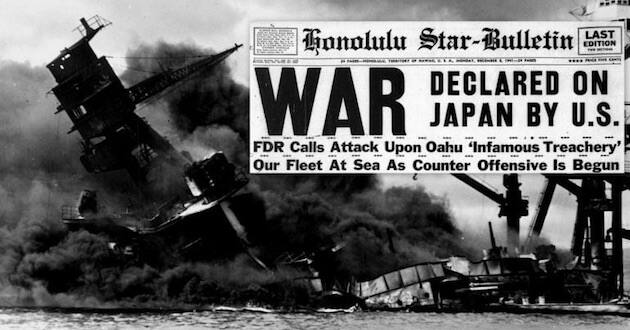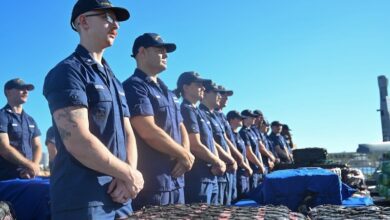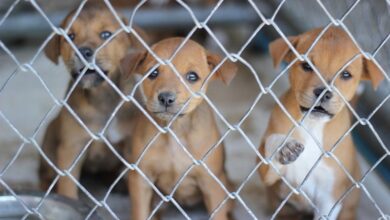Memories of Pearl Harbor attack fading as ‘what-if’ questions remain

Yesterday, on the anniversary of the Japanese attacks on Pearl Harbor, we learned that memories of that event are fading fast. Interviews on the streets with young people found little understanding of that day.
The heroes World War II created are dying at a rapid rate. Col. Edward Shames, the last of the “Band of Brothers” of the 101st Airborne immortalized by Stephen Ambrose and the HBO series, died last Friday at age 99. Former Senator Robert Dole from Kansas died on Sunday at the age of 98.
Before long, the war will have entirely departed living memory. But the infamy will remain.
Out of the clear blue sky of an Oahu Sunday morning, the navy of the Empire of Japan launched a pre-emptive surprise attack on the United States naval base at Pearl Harbor in what was then the territory of Hawaii. The attack commenced at 7:48 a.m. local time, which was mid-day on the East Coast. Before Pearl Harbor’s defenses could be roused — there had been a party the night before, as nobody expected trouble — Japanese planes descended raining bombs; 2,335 Americans were killed in a war in which they thought their country was still neutral. The dead were mostly sailors, half of them on the USS Arizona, one of four battleships sunk that morning. The Imperial Japanese Navy lost 64 men. It was, as Franklin D. Roosevelt branded it, “a day that will live in infamy.” The infamy lives on.
Pearl Harbor has, like many such pivotal turning points, attracted its share of controversies:
- Japan attacked without advance notice, and only delivered its notification of breaking off diplomatic talks after the battle had started. That notice was lengthy and delayed in translation and transmission. Was the delay just a foul-up, or did elements of the Japanese government purposely seek to catch Americans entirely by surprise?
- FDR was tightening the screws on Japan, including an oil embargo imposed in the summer of 1941. He was increasingly pushing the United States toward more involvement in the war in Europe. Did the U.S. government know more about the looming Japanese threat than it let on from the fragmentary intelligence it had available? Did it share some responsibility for the onset of war, or was it at least negligent in not having Pearl Harbor on higher alert?
- Was Japan’s war with the United States, which proved ruinous, avoidable, such that Pearl Harbor should be seen as a catastrophic mistake? Or was a confrontation inevitable — and if so, was the military advantage of a surprise attack outweighed by the cost of convincing the world that Japan was wholly in the wrong?
- Was Nazi Germany foolhardy in declaring war on the U.S. immediately in solidarity with its Japanese ally, or would FDR have been able to get Congress to add a declaration of war against Hitler as well?
- Was it necessary for the Japanese Navy to retreat from the scene so quickly, having failed to destroy the American carrier fleet or the fuel tanks at Pearl Harbor?
The historical what-ifs and who-knew-what-and-whens, however, are beside the point to the instant, world-changing impact of the battle.
–Alan Goforth | Metro Voice






